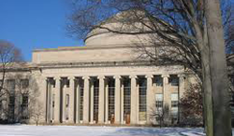
Acceptance by Proxy: Analyzing Perceptions of Hydraulic Fracturing to Better Understand Public Acceptance for Geologic Storage of Carbon Dioxide
Geologic Storage of Carbon Dioxide: Risk Analyses and Implications for Public Acceptance
Public Awareness of Carbon Capture and Storage: A Survey of Attitudes toward Climate Change Mitigation
Sociopolitical Challenges to the Siting of Facilities with Perceived Environmental Risks
The Hawaii Carbon Dioxide Ocean Sequestration Field Experiment: A Case Study in Public Perceptions and Institutional Effectiveness
Building New Power Plants in a CO2 Constrained World: A Case Study from Norway on Gas-Fired Power Plants, Carbon Sequestration, and Politics
Project: Public Awareness of Carbon Capture and Storage: A Survey of Attitudes toward Climate Change Mitigation
Research Team: Tom Curry, Steven Ansolabehere and Howard Herzog
Sponsors: Carbon Sequestration Initiative and The Alliance for Global Sustainability
Year: 2004
Abstract:
The Carbon Capture and Sequestration Technologies Program in the Laboratory for Energy and the Environment at MIT conducted a survey of public attitudes on energy use and environmental concerns. Over 1,200 people, representing a general population sample of the United States, responded. The survey asked a representative sample of the American public seventeen questions about the environment, global warming, and climate change-mitigation technologies.
The analysis in this thesis uses the survey responses to draw conclusions about the level of public understanding and awareness of global climate change and carbon dioxide capture and storage and to suggest implications for public outreach.
The survey results show that carbon dioxide capture and storage and carbon sequestration are largely unknown to the general public, and there is significant confusion over which environmental issue the technology is intended to address. The environment is not a top priority for the U.S. public, and global warming is not the top environmental concern, even for those concerned about the environment.
The public’s willingness to pay to solve global warming increases when an individual is concerned about the environment or believes that immediate action is necessary to address global warming. An experiment within the survey shows that a large portion of the public supports investment in renewable energy technologies but that support decreases when cost information for all climate mitigation technologies is provided.
Publications:
Curry, T.E., D.M. Reiner, S. Ansolabehere and H.J. Herzog, "How Aware is the Public of Carbon Capture and Storage?" presented at the Seventh International Conference on Greenhouse Gas Control Technologies, Vancouver, Canada, September (2004). <PDF>
Curry, T.E., "Public Awareness of Carbon Capture and Storage: A Survey of Attitudes toward Climate Change Mitigation," M.I.T. Masters Thesis, June (2004). <PDF>